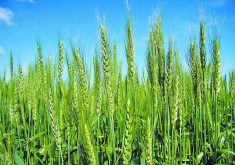(Reuters) — BASF is halting development of hybrid wheat in North America after results of seed trials failed to reach development goals, the company said March 1.
BASF instead plans to focus on developing the new type of wheat in European markets, aiming to launch the technology there “toward the end of the decade,” the company said.
BASF said earlier this winter it would cut 2,600 jobs amid rising costs and weak earnings. Those job cuts included its North American hybrid wheat developers, BASF said.
Wheat breeders have been working for years to develop cross-bred wheat varieties to boost yields and make crops more resistant to drought or disease.
Read Also

Phosphate prices to remain high
Phosphate prices are expected to remain elevated, according to Mosaic’s president.
Tightening global grain supplies and soaring prices after Russia’s invasion of major wheat exporter Ukraine have focused further attention on the technology.
But the road to market has been slow because development is more costly and difficult, and companies saw lower potential for returns.
“The results of our North American trials have not achieved the development goals we set to meet the needs of growers in Canada and the United States,” BASF said in an emailed statement.
The company added that markets in Europe hold “the greatest opportunity to successfully bring this innovation to farmers.”
Chinese-owned seed maker Syngenta is an early leader in developing hybrid wheat, with a small number of U.S. fields due to plant it this year. BASF and Bayer also have varieties in development for launch later this decade.















